
Being able to minister effectively across cultural, social and even language barriers is the universal challenge for missionaries. A recent Lausanne Movement article about cross-cultural missions states that
“ministry in this global age requires a deep commitment to a respectful mindset… True identification with people from other cultural backgrounds starts with recognising the different realities.”
If you preparing for missions in Japan, here are two cultural nuances you might want to understand about the Japanese and three tips for short-term trippers.
Understanding the Wa, 和
“The Japanese culture seems to value indirectness in communication. Saying everything in conversation is deemed too forward, being insensitive to the feelings of the other party.”
“It’s assumed that the people conversing will ‘read the atmosphere’ (kuuki wo yomu, 空気を読む) among them, and avoid saying anything that would break the harmony (wa, 和 ) in the group,” Victor Toh, Cru Singapore’s recent missionary to Japan explained.
“I think this could be one of the main misunderstandings between Japanese and foreigners. It’s also one of many cultural nuances in communication that I am learning to keep in mind.”
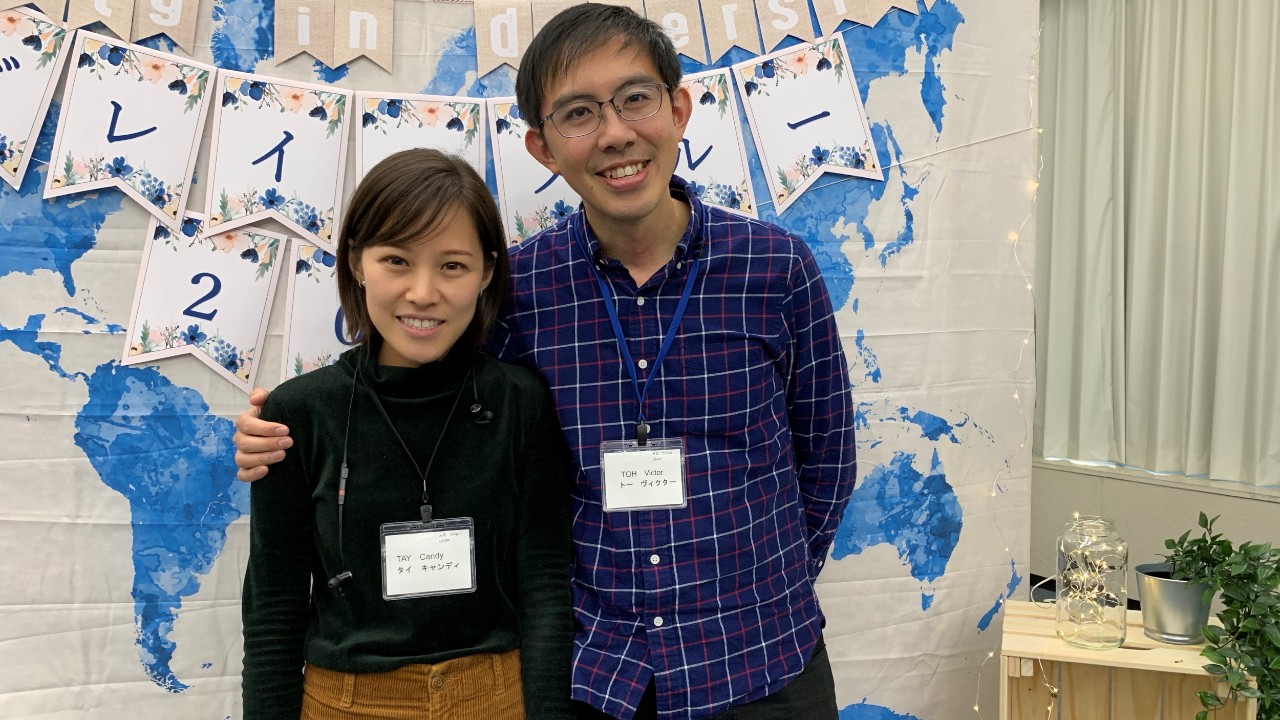
Victor with Candy, his wife
Cultural nuances in Japan for short and long-term trippers to navigate:
#1 Monoculturalism: Isn’t God just one of the gods?
Kevin Laverman, American missionary and pastor of Denen Grace Chapel for 18 years, explained, “In America, we start with a worldview that is monotheistic, so it’s easier to bridge people’s understanding of who God is.”
“In Japan, because of their polytheistic background combined with secularism, it’s a huge jump to understand the concept of monotheism.”
With Shintoism and Buddhism intertwined with ancient Japanese culture, there’s an unsaid resistance towards something perceived as new or foreign.
Ken Taylor, 24-year veteran missionary church planter with Japan Baptist Fellowship, puts it this way, “With one language and a long history of traditions, the Japanese are culturally homogenous. Typical outreach strategies are not well-received because Japanese are generally wary of anything new.”
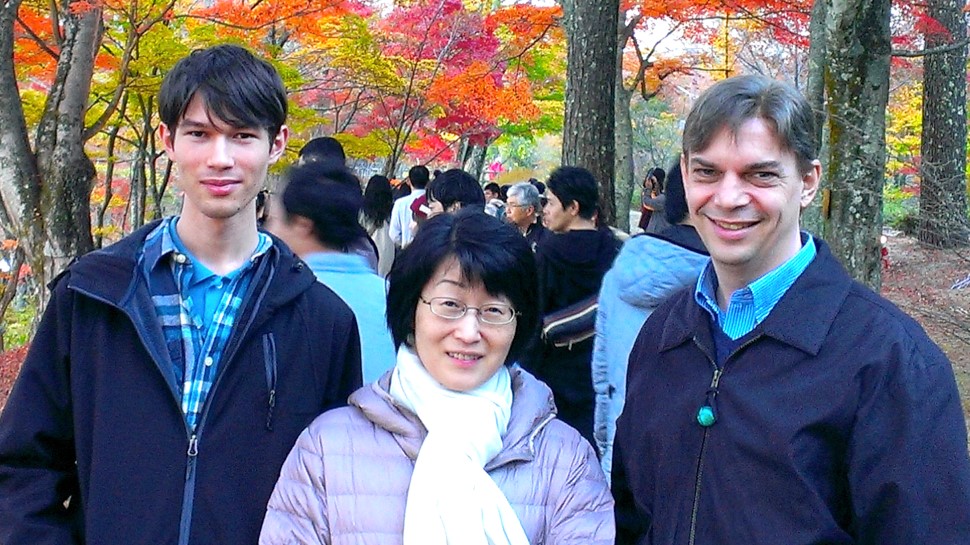
Kevin and his family
#2 Cult confusion: Isn’t Christianity a cult?
“People are careful about religion now because in the past, people did many bad things in the name of religion,” Tsuda University student and Japan Campus Crusade for Christ (JCCC) leader, Tomomi Bomukai shared.
Fellow student and JCCC member, Tamami Toyonaga, added, “There are many cults in Japan, and people still remember the cult attacks from the past (e.g. Tokyo subway sarin attack by members of the cult movement, Aum Shinrikyo).”
“Before I came to Christ in university, my perception of Christianity was that it was scary and just another one of these cults or religions.”
Even away from the city, Atsushi Ebuchi, National Director of JCCC, explained, “Jehovah’s Witnesses go house to house in the countryside, resulting in people having an intrusive image of Christianity. Campuses will warn students to ‘beware of cults’ when they come in as freshmen.”
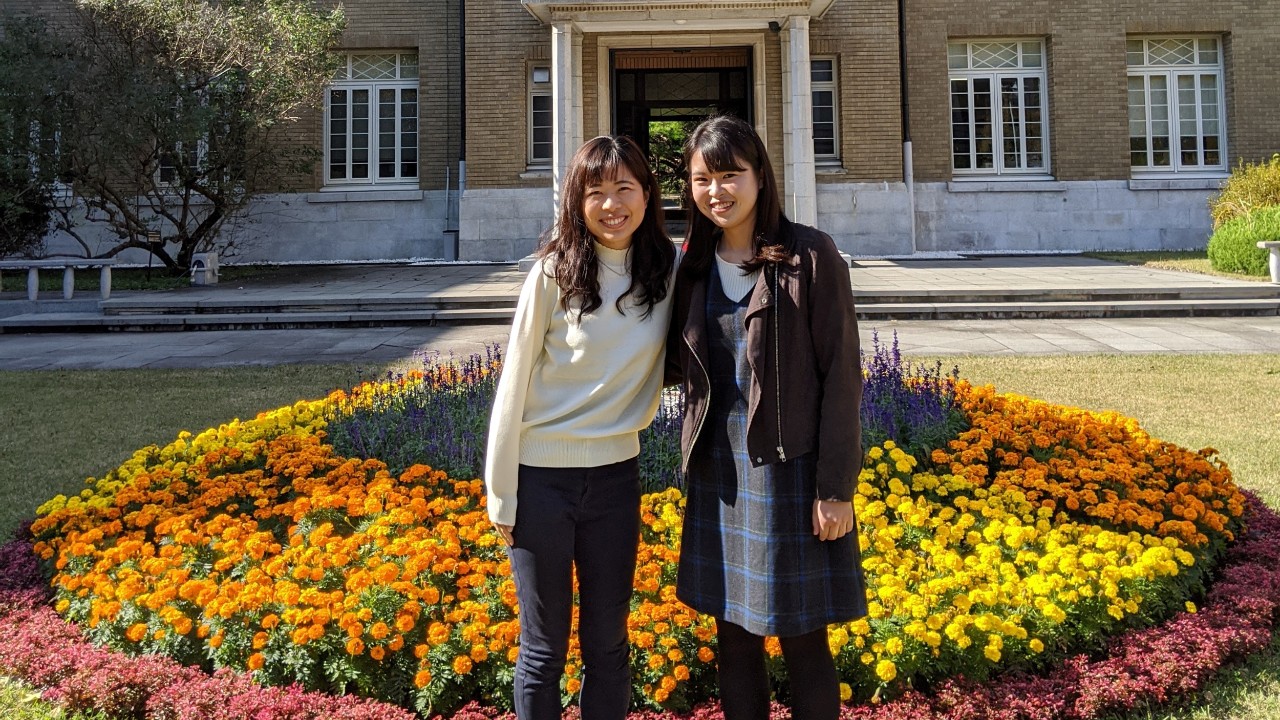
Tomomi (left) and Tamami (right) at Tsuda University
Any room for mistakes?
While grasping cultural nuances take time, God does redeem the cross-cultural mistakes of overseas missionaries for His purposes.
Atsushi talked about his own spiritual journey, “A missionary not understanding our Japanese culture actually brought me closer to knowing God.”
“Back in university I wanted to learn English, so this JCCC missionary met me once a week for bible study in English.”
It went on for almost a year, and I really wanted to stop at many points! But I didn’t have the courage to tell him I didn’t want to learn anymore, because I felt very sorry if I were to do that – honne tatemae, what I wanted to say in my heart, I couldn’t.”
This Japanese social concept of “honne” (honest thoughts, 本音) and “tatemae” (public façade, 建前) as Atsushi describes is,
“A characteristic of Japanese people, that we cannot speak directly. We hope the other party will understand the things we cannot say, what we actually want, through the indirectness.”
“Even though I really wanted to give up, we would still meet. He continued to show such interest and care for me that I felt the overflowing love of God in him and was able to open my heart,” Atsushi recalled.
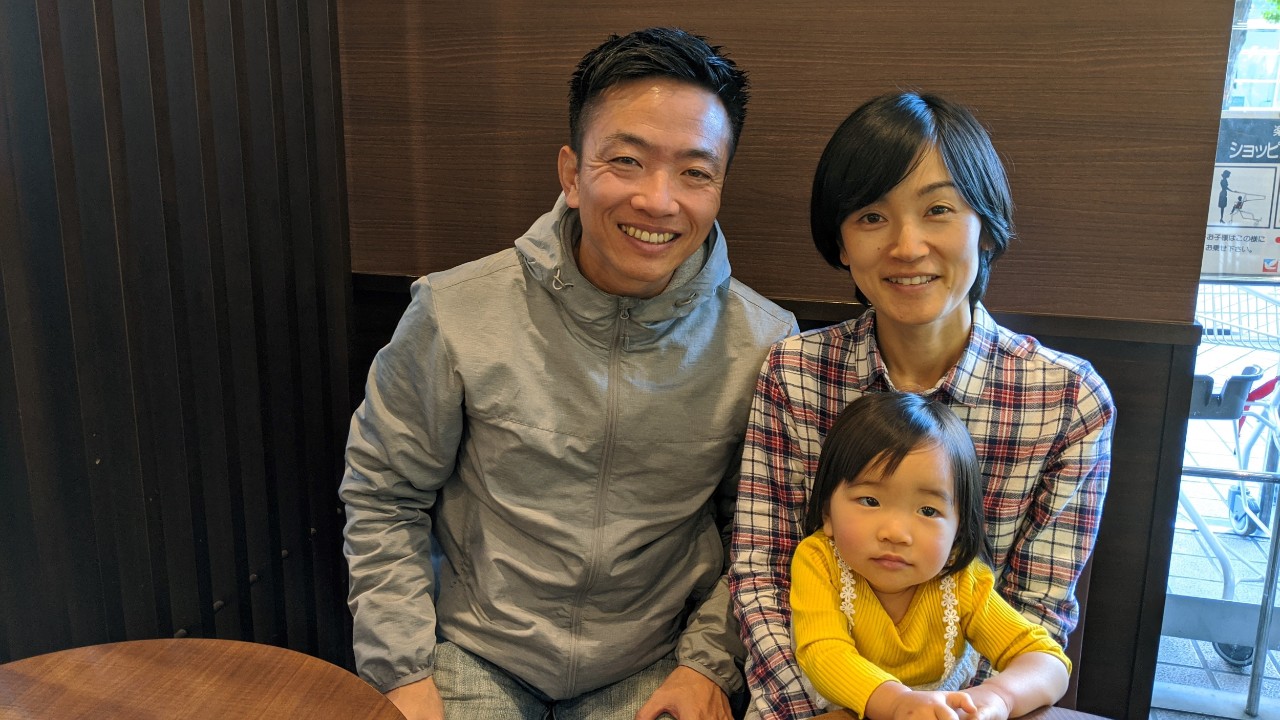
Atsushi with Miyuki, his wife, and younger daughter
Being Scriptural and flexible
Victor said, “In every culture there are parts to learn from and parts we may want to rethink. We need to identify which they are, learn and adapt so we don’t put an unnecessary barrier up from the beginning, but sometimes we need to go counter-culture.”
“We need to be bold or Scriptural enough to say, I’m going to follow what God says and be different even if Japanese culture is like this.”
Weng Kong and Jaine Loh, Cru missionary couple based in Tokyo for 25 years, added, “Early on, we realised Japanese people don’t share their heart easily and we didn’t know what they were really thinking in their responses to different contexts.”
“But God has since taught us that they are special in how they approach situations, we learned to accept them for who they are and work together.”
“It’s not our place to settle issues in a Singaporean way (e.g. through confrontation), because it is not their culture. As we learned about the 'Wa' (harmony, 和) valued in Japanese community, we can advance God's Kingdom together with them.”
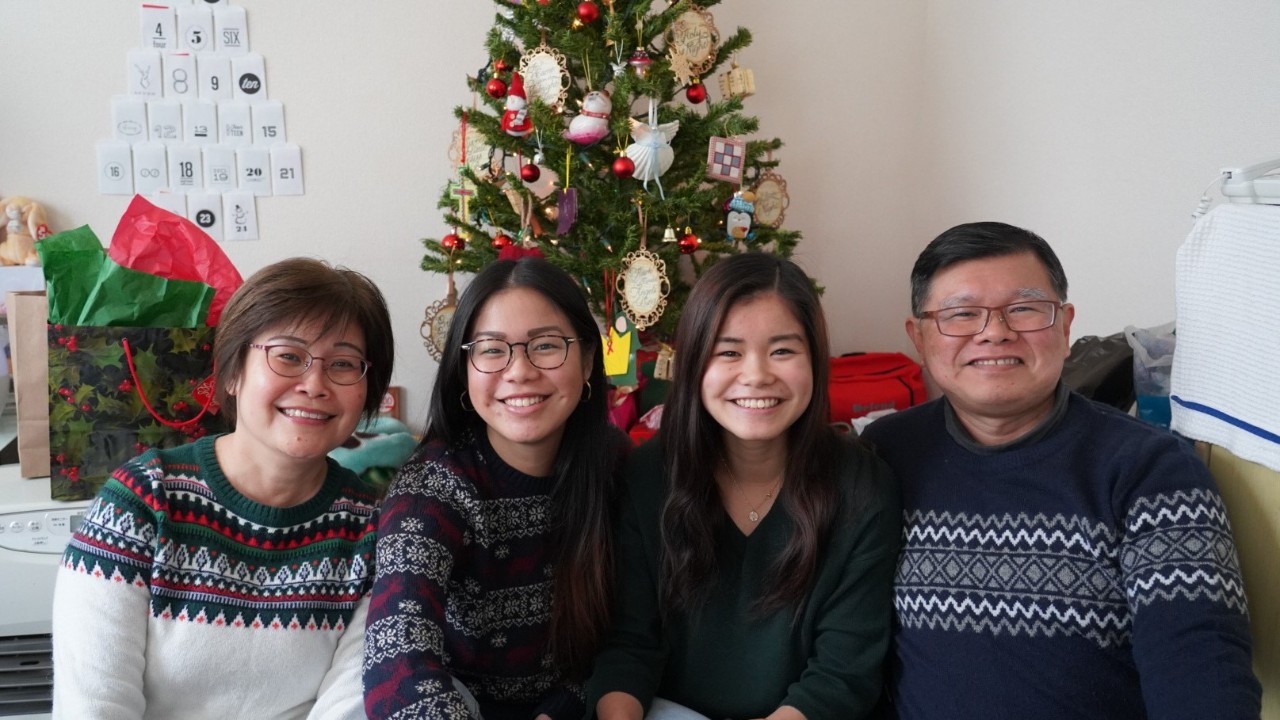
Weng Kong (far right), Jaine (far left), and their 2 daughters
Meeting real felt needs
Ken Taylor discovered the keen interest that Japanese have in gospel music and has been training gospel choirs since 2000.
Known as the Hallelujah Gospel Fellowship (HGF), they started with one choir of 30 people, and are now running 70 choirs in partnership with 50 churches all over Japan with 1500 members who are mostly non-Christian. “This is something that Japanese people want, that the church can provide. Because we’re doing this for evangelism and ministry, I only start choirs where the pastor of a church is involved.”
“It’s not about the programme, I want the pastor to be committed to doing life and to love these choir members,” Ken asserted.
Weng Kong added, “Locals that I know are keen to develop communities around interests first. After which the gospel can be communicated. But it’s about building relationships first and being upfront and letting them know that you are a Christian, and this is just a part of your life which you’ll be sharing.”
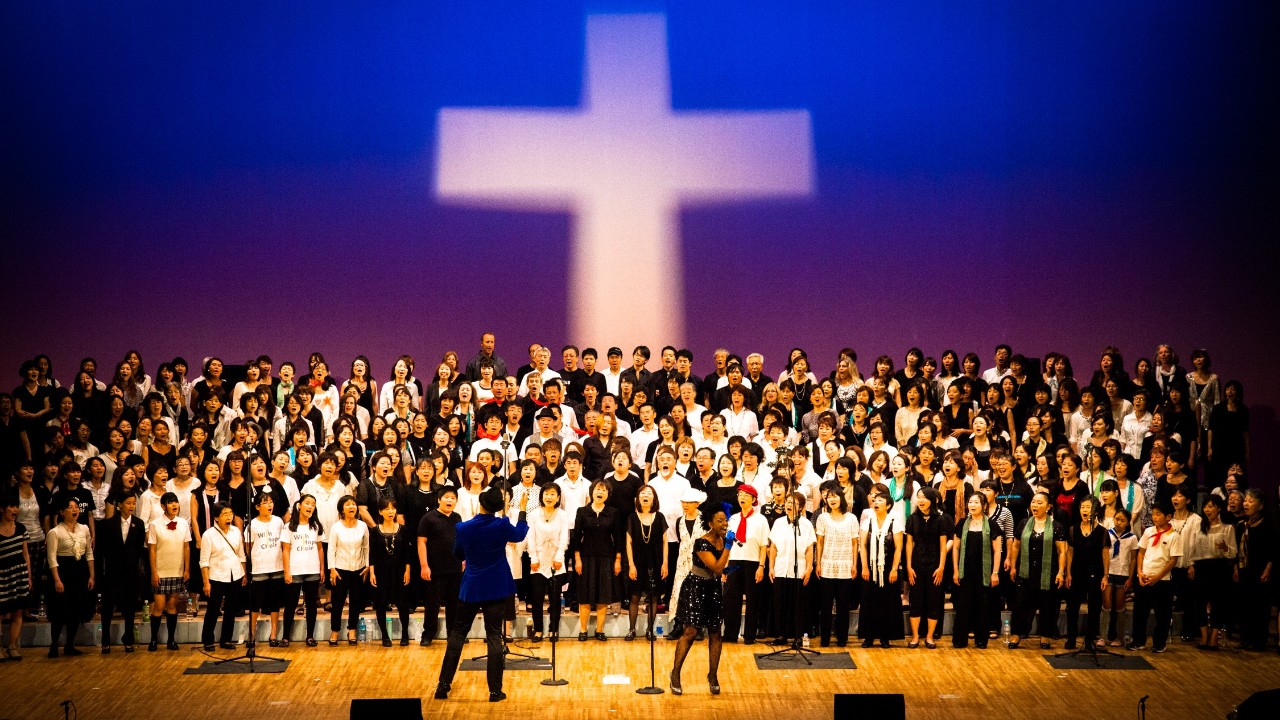
One of HGF's gospel performances
Tips for an effective short-term mission trip:
#1 Serve the larger body, not your agenda
When navigating traditional cultures like Japan’s, it is important to understand respect on their terms. Atsushi expressed, “It’s only natural to be excited when you’re doing God’s work, but you need to be respectful to the organisations and churches you are partnering with.”
“Practically, that looks like finding out from them what’s the best approach and being sensitive to the culture; understanding what’s acceptable and what isn’t.”
“That’s not to say going to the other extreme and not do anything—it’s good to share the gospel passionately! There just has to be a balance.”
“We need Christians who are mature enough to adapt, humble in spirit, and willing hearts to support whatever is needed at the moment,” Kevin added.
“Even if you’re a little unsettled by the language or culture, we need short-termers who are ready to love and help the local ministry and community by putting their hand to the plough, even if they don’t get to do what they planned or don’t feel useful sometimes.”
Echoing this, Jaine stated, “Programmes and activities are always welcome, but don’t be discouraged if there isn’t a chance to do it. Teams need to understand that even if they don’t see it, there is a reason for how things are done.”
“We must keep the long-term vision in mind – and even if no one receives Christ in the time that you are here, it’s okay! Like it says in the bible, Paul planted, Apollos watered, and God caused the seed to grow. You could be the one planting the seed, so just do your part,” she concluded.
#2 Build communities, not programmes
Because Japan is a developed nation, outreach programmes must evolve to reach them. “For years, the missionary psyche is that you will not charge, whether for bible study, an event or workshop. But you can’t give things for free in Japan, they will not come.”
“In Japan, relationships are based on ‘repaying’ (ongaeshi, 恩返し) and you would feel indebted by going for something free. Instead, we need to learn how to meet the needs of Japanese people in a way they can receive it.” Ken described.
Agreeing with the sentiment, Atsushi said, “Programmes are secondary. It starts with taking an interest in the individual and understanding their needs. There is a ‘kabe’ (barrier, 壁) that needs breaking down to draw out their hearts.”
“Like Paul says in 1 Cor 9:22, ‘I have become all things to all people so that by all possible means I might save some.’ The question is, what kind of good acts will speak to their hearts?”

Ken, directing one of HGF choir's performance
#3 Marry genuine love with creativity
Speaking for campus ministry, Tomomi shared, “Some ‘kufu’ (creativity in ideas, 工夫) will be needed, in addition to being authentic and genuine in getting to know locals.”
“Campus teams might find it easier to connect if they come with an interest in Japanese culture or find things in common with students.”
“Because students are so busy, this helps them to understand the purpose behind why you’re trying to connect with them. This also removes the fear that you’re not part of a cult.”
“Some idea examples could be – a cultural exchange, bringing different types of food to introduce and share. Most university students want to improve their English—so perhaps a skills exchange of English-Japanese lessons? Even if it’s as simple as explaining that you’re a Christian and you just want to connect with them over a conversation,” Tomomi offered.
Key to ministry longevity
Cross-cultural preparations for missions are not an option—it’s a must. On top of astute observations and adaptations, the key to ministry longevity is to remember that God is always at work and in control.
As gospel seeds are being planted, watered and grown, the harvest always remains plentiful, and the workers few. Would you join us as we continue to sow in the Land of the Rising Sun?
Reflection:
Keen to be involved in a short- or long-term mission trip? Contact us at missions@cru.org.sg.
Our missions ministry has also planned out trips to Japan - click on Go Japan! trips to find out more!

Deborah is passionate about capturing different perspectives to create relevant and impactful content. She enjoys meaningful conversations and collecting experiences, but also loves time spent just with a good book and cup of coffee.
©1972-2025 Cru Singapore. All Rights Reserved.